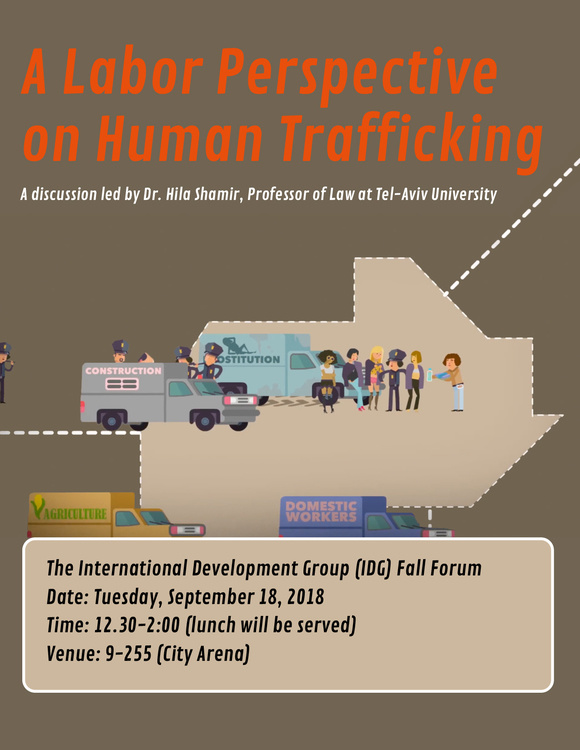
Events
A Labor Perspective on Human Trafficking

Human trafficking is considered by many to be one of the most pressing moral and political challenges of today’s global economy. However, despite significant international commitment to combat trafficking a mere 3% of the millions of victims are identified every year, and far fewer are assisted. In her talk Dr. Shamir will propose that one reason for the low effectiveness of contemporary anti-trafficking efforts lies in the mismatch between the legal tools we use to address the problem, and the actual causes of human trafficking.
Dr. Shamir will discuss the need to move away from the currently predominant approach to trafficking, which focuses on criminal law, border control, and human rights, towards a labor-based approach that targets the structure of labor markets that are prone to severely exploitative labor practices. She will suggest a blueprint for such a labor approach, recognizing that there can be no “one size fits all” solution. The various components contributing to worker vulnerability can vary from country to country, city to city, and from sector to sector. Yet some tools – at the international, national, municipal, and workplace level - seem to have the potential to impact the balance of bargaining power between workers and employers in sectors prone to severe labor market exploitation. These include, for example, bilateral agreements on migration, national regulations of labor standards and recruitment practices, worker unionization (including alt-labor), and voluntary corporate codes of conduct.
Dr. Shamir earned her S.J.D. and LL.M. from Harvard Law School and LL.B. from Tel-Aviv University. Shamir received an European Research Council (ERC) grant to pursue research on a Labor Approach to Human Trafficking, and established TraffLab – labor perspective to human trafficking research project (2018-2023).

